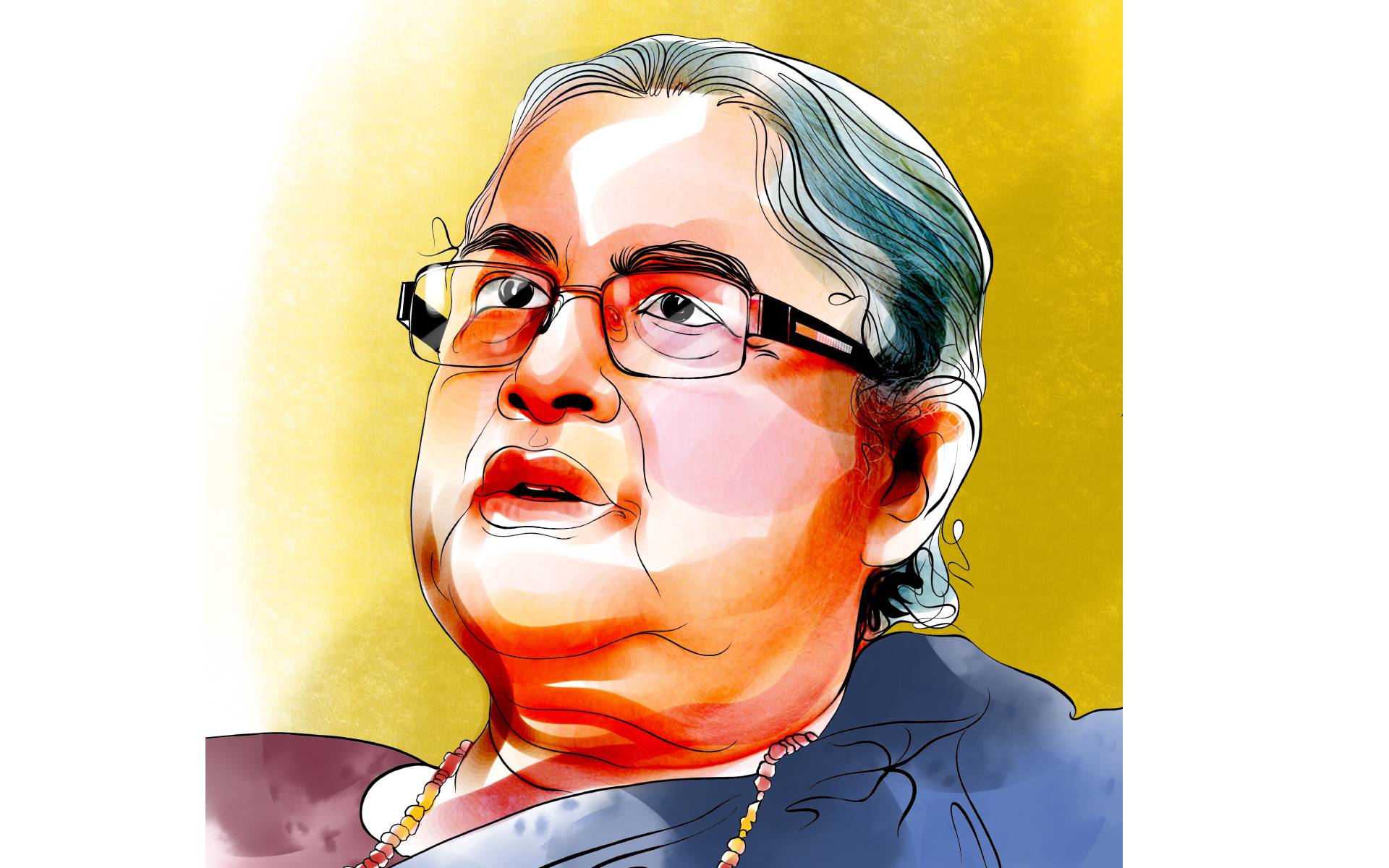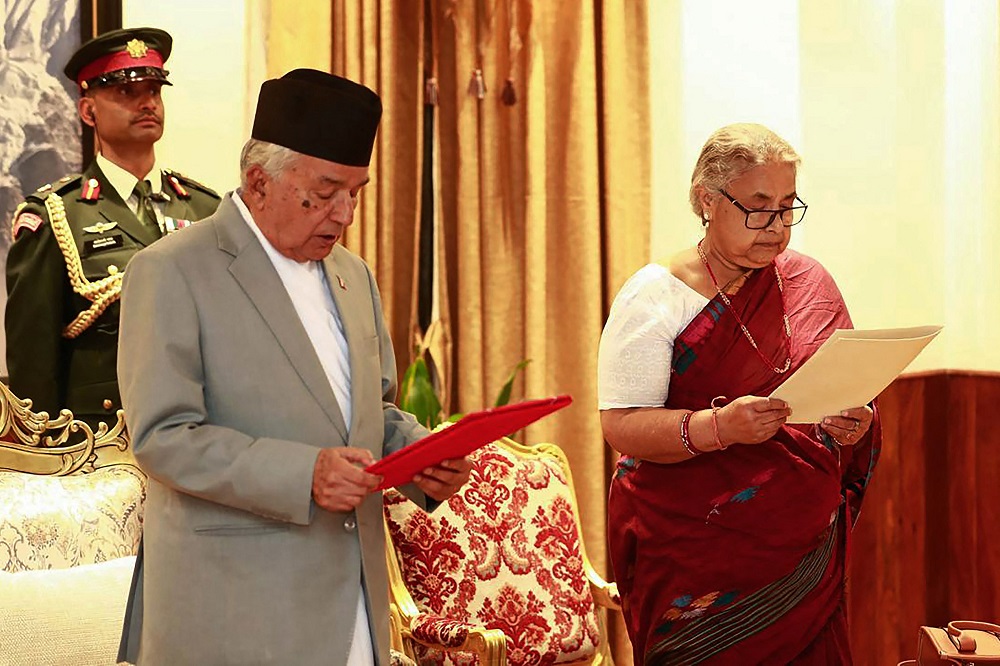
Making history in modern Nepal’s landscape, former Chief Justice Sushila Karki, who previously set a milestone in the judiciary in 2016, became Nepal’s first woman Prime Minister on September 12.
Although Interim Government Prime Minister Karki is 73 years old, it was the youth movement, known as Gen-Z, that ousted the previous government led by KP Sharma Oli and put Karki at the helm of the country during a critical time in Nepal’s recent history.
“For as long as I’ve known her, she has been a lawyer. Then she became Chief Justice of Nepal and now she is the first woman Prime Minister of the country. She is natural and genuine. She is fair and presents herself authentically,” said Mohana Ansari, lawyer and advocate of human rights, who has followed Karki closely for a long time. “Prime Minister Karki knows the law and politics closely. So as a Prime Minister she will definitely deliver what she used to do in her previous duty.”
Karki’s interim government has the mandate to conduct free and fair elections on March 5. The election will lead Nepal to stability. Her appointment has given a positive message to the world that Nepal has a proper place for women’s leadership at the highest level of the country in a vital period.
The Gen-Z movement, which was held September 8 to 9, claimed the lives of at least 74 people, left hundreds injured, and damaged infrastructure worth billions across the country. The Gen-Z protest was against corruption in Nepal and the government’s restriction on freedom of expression through a social media ban. The killing of innocent people further fueled the protests, forcing then Prime Minister K.P. Oli to resign on September 9. As the newly appointed Prime Minister of Nepal, Karki has the role of rebuilding the country’s infrastructure and maintaining peace and social harmony in these difficult times.
Karki was born in 1952 in Biratnagar, an eastern city of Nepal. Her father, a farmer-turned-politician who aligned with the Nepali Congress party, highly valued education for both men and women. Although he initially hoped Karki would become a doctor, she instead pursued law, later becoming Justice and eventually the first woman Chief Justice of Nepal in 2016. Karki completed her BA degree from Mahendra Morang Campus, Biratnagar, and a master’s degree in Political Science from Banaras Hindu University in India.

In July 2016, the Constitutional Council recommended Sushila Karki as Chief Justice of the Supreme Court. She served until June 2017, a tenure marked both by courage and controversy, and even faced impeachment proceedings. “Actually, I never thought of becoming Chief Justice. I worked for human rights and believed in doing what is right. Leadership positions came because of persistence, support, and faith,” she said during an interview with the media.
In 2012, Karki was one of two Supreme Court justices who jailed a serving government minister for corruption. She also issued a landmark ruling granting Nepali women the right to pass citizenship to their children. Throughout her career, she has always defended judicial independence, championed women’s rights, and fought against corruption.
Karki also faced one of the toughest moments as Chief Justice in 2017, when the government attempted to impeach her after she overturned its choice for police chief. Her verdict stated that the appointment of the police chief was a violation of merit. The move to impeach her, backed by the government and political parties from the Federal Parliament, was not only criticised in the country but also by the international community. One of them was the United Nations, which called it “politically motivated.” The impeachment was later blocked by the court.
In her personal life, Karki is a religious and meditative person who starts her day with puja and reading newspapers. Karki is married to Durga Prasad Subedi, who was part of the youth wing of the Nepali Congress in the 1970s. He was involved in the 1973 hijacking of a Royal Nepal Airlines DHC-6 Twin Otter aircraft as a revolt against the autocratic rule of the Ranas in Nepal.
Although Karki has assumed power after the Gen-Z movement, her journey to lead the country in the right direction will not be an easy one. She faces numerous challenges ahead: holding elections within six months, restoring administrative efficiency, rebuilding destroyed offices, regaining voter trust, working with political parties, eliminating corruption, maintaining security and stability, and above all, managing the influence of external powers.
Former member of the National Human Rights Commission, Ansari, added that Prime Minister Karki has witnessed many political events during her career and also has the geopolitical knowledge to deal with international communities. “Although it is called an interim government, this is like other governments in Nepal. Her work with international communities, including our neighbours, will make it easy for upcoming governments after the elections,” said Ansari.